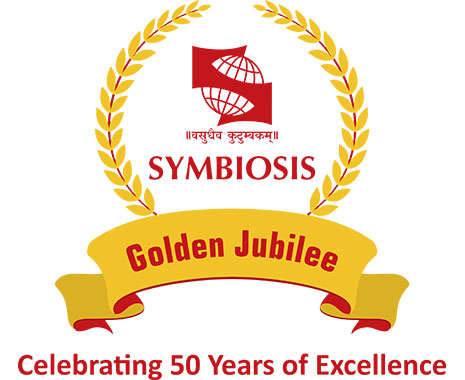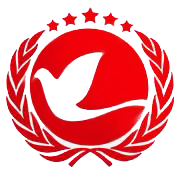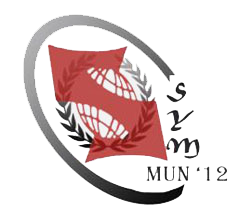Third Edition Of Symbiosis National Model United Nation’2016 – March 26-27, 2016
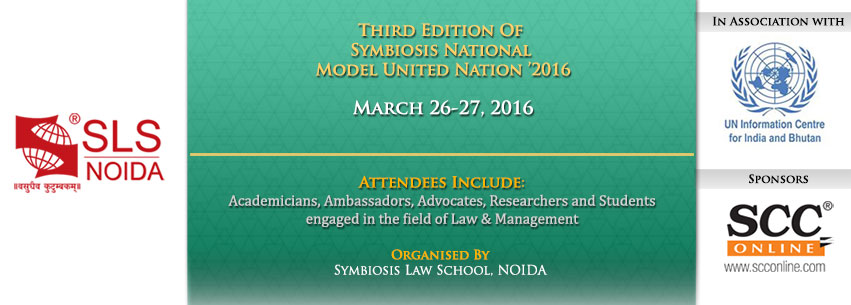
Introduction
At Symbiosis Law School, NOIDA we understand the value of a healthy participative debate based on issues that need to be resolved, keeping in mind the current events that are occurring all around the world. There is a need to be able to enhance the quality of the arguments and solutions, while keeping them simple as well as practical enough to be implemented.
Begun over 75 years ago with a simulation of the League of Nations, Model United Nations is the product of years of gradual refinement. It is one of the oldest student simulations in the world.
Symbiosis Law School, Noida is proud to present its Third Edition of Symbiosis Model United Nations (SYM MUN’16). After successfully conducting the National Level Conference ‘SYM MUN’14’ and SYM MUN’12 as well as two Intra MUN's in association with United Nations Information Centre for India & Bhutan, we are back! SYM MUN’16 will be held on March 26-27 , 2016 at Symbiosis Law School, NOIDA in association with United Nations Information Centre for India & Bhutan.
SYM MUN’16 tends to create a culture where the people learn and understand the gravity of the international issues the world is dealing with presently; where they are able to connect with the issues in such a way that they come up with the best solutions to bring about a change. And most importantly, it helps you sharpen your diplomacy skills, debating skills and communication skills.
SYM MUN’16 presents an opportunity for all to put themselves in the shoes of delegates that make life-changing decisions keeping in mind the best interests of their country. More than just deciding whom to support and what cause to stand up for, SYM MUN’16 will allow you to enhance your negotiation and diplomacy skills and acknowledge your ability of coming to an amicable consensus.
You are about to embark on a life changing journey that will help you develop confidence in leading others, be better aware of the global issues and enhance your debating skills to a level that takes you to great heights in any field that you opt for!
SECRETARY GENERAL's MESSAGE
Distinguished Delegates,
Honorable members of the Executive Board and friends,
As the Secretary General of SYMMUN’16 it gives me great pleasure to welcome you all to the 3rd edition of SYMMUN. Let me take this opportunity to welcome each and every one of you back into the riveting world of model united nations.
SYMMUN’16 will aim to provide a platform for students to experience and participate in a successful simulation of the United Nations. On top of allowing them to gain a much wider social network and more global perspective on world issues, we aim at educating you in the areas of international relations and diplomacy; developing professionalism and honing your public speaking, debate and leadership skills.
Ever since its inception in 2012 SYMMUN has grown into a vast forum for likeminded people and has given them the opportunity to discuss, analyse and solve some of the world’s most difficult issues. Our mission at SYM MUN is not confined to good debate and learning about international issues, but we believe in making the MUN a fruitful experience as a whole. To address the global issues at hand, we will be simulating 6 challenging committees including:
- GA-DISEC Chemical Biological Warfare
- UN Human Rights Council- Syrian Refugee Crisis in Germany
- International Law Commission- The Scope and Application of the Principles of Universal Jurisdiction
- Stakeholders Meet- India takes a Fascist Tilt.
- UN Security Council- Creation of a Standing Armed Forces to Safeguard the Values Enshrined in the UN Charter
- Emergency Continuous Crisis Committee
On behalf of the Secretariat of SYM MUN’16, I would like to invite you to all to join us in making this conference a huge success and be a part of the movement. I, along with my highly qualified Organizing Committee, am looking forward to welcoming you all at Symbiosis Law School, Noida campus this March.
It’s time to show us what you got!
Sincerely
Maanya Vaidyanathan
Secretary General, SYMMUN’16
COMMITTEES FOR SYMMUN '16
GENERAL ASSEMBLY: DISEC
This year, the General Assembly- Disarmament and International Security committee will be discussing the Chemical & Biological Warfare. Bio-chemical Weapons, as we know them in the modern area, has resulted in countless casualties globally. Between the infamous mustard gas, Agent Orange and more, there is no doubt in the danger of such weapons. The Geneva Protocol, signed in 1925, was a welcome step towards the prohibitions of bio-chemical weapons in warfare but left, however, several shortcomings. Between development, production or stockpiling of bio-chemical weapons, many states not party of the protocol were still gravely affected. Decades later, progress has been made after the implementation of Chemical Weapons Convention and the Organization for the Prohibition of Chemical Weapons. With several countries still not on board along with other numerous problems to be solved, the journey with bio-chemical weapons is far from over. It is important to take into consideration that this threat is no longer contained to just nations; it is also concerns terrorist groups. This committee shall aim to find a solution to the growing threat of chemical and biological weapons.
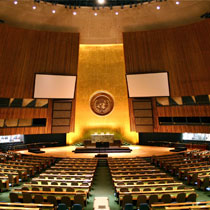
UNITED NATIONS SECURITY COUNCIL
Under the United Nations Charter, the Security Council has primary responsibility for the maintenance of international peace and security. It has 15 Members, and each Member has one vote. Under the Charter, all Member States are obligated to comply with Council decisions. The concept of a standing U.N. Armed force has been around since the world body’s creation in 1945; however, due to member states’ concerns about preserving their sovereignty, it never materialized. In this committee a coalition of 37 civil society organizations, including Human Rights Watch, Refugees International, Rainbow/PUSH and a variety of Christian groups, shall attempt to convince all that global conditions are conducive to the formation of such a force.
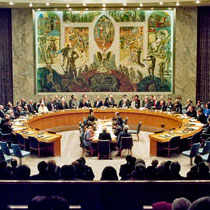
UNITED NATIONS HUMAN RIGHTS COUNCIL
Millions of displaced Syrians are struggling, either within the Syrian borders or in neighboring countries, and rely on the help of UNHRC. With increased instances of conflict in Syria, the number of refugees continues to grow, causing an increase in budget needs as well. More than a domestic issue, the entire European region is affected by the Syrian refugee crisis as the strain on resources is felt in hosting countries. This committee shall aim at coming to a peaceful and humane solution to the overgrowing refugee population in Europe and how to filter out the individuals that may attempt to pose a threat.
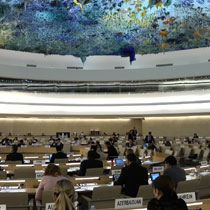
UNITED NATIONS HUMAN RIGHTS COUNCIL
Millions of displaced Syrians are struggling, either within the Syrian borders or in neighboring countries, and rely on the help of UNHRC. With increased instances of conflict in Syria, the number of refugees continues to grow, causing an increase in budget needs as well. More than a domestic issue, the entire European region is affected by the Syrian refugee crisis as the strain on resources is felt in hosting countries. This committee shall aim at coming to a peaceful and humane solution to the overgrowing refugee population in Europe and how to filter out the individuals that may attempt to pose a threat.

INTERNATIONAL LAW COMMISSION
The International Law Commission was established by the General Assembly to undertake the mandate of the Assembly, under article 13 (1) (a) of the Charter of the United Nations to "initiate studies and make recommendations for the purpose of ... encouraging the progressive development of international law and its codification. The committee shall debate on whether or not universal jurisdiction should allow for the trial of international crimes committed by anybody, anywhere in the world.
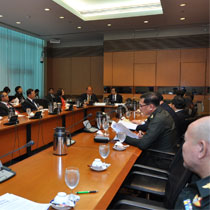
STAKEHOLDERS MEET
Indians have rarely been careful about using the word fascist when it comes to describing their government. The word is thrown around indiscriminately. In this committee the delegates shall attempt to come to a conclusion as to whether or not there is a rise of fascism happening during this period of deep social crisis of capitalism.
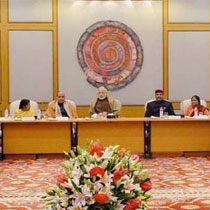
EMERGENCY CRISIS COMMITTEE
The ECC is a fast paced committee which shall allow quick action and on the spot decision making by delegates. It presents a unique opportunity in the world of MUN. The delegates shall be presented with a crisis 24 hours prior to the conference in the form of a news blast and it is up to them to take a stand and propose their ideas and decisions to the rest of the committee, all the while dealing with new developments through the two days of the conference.
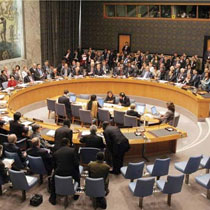
AGENDA
- GA-DISEC- “CHEMICAL BIOLOGICAL WARFARE”
- UN HUMAN RIGHTS COUNCIL- “SYRIAN REFUGEE CRISIS IN GERMANY”
- INTERNATIONAL LAW COMMISSION- “THE SCOPE AND APPLICATION OF THE PRINCIPLES OF UNIVERSAL JURISDICTION”
- STAKEHOLDERS MEET- “INDIA TAKES A FASCIST TILT”
- UN SECURITY COUNCIL- “CREATION OF A STANDING ARMED FORCES TO SAFEGUARD THE VALUES ENSHRINED IN THE UN CHARTER”
- EMERGENCY CONTINUOUS CRISIS COMMITTEE
EXECUTIVE BOARD
GA-DISEC
Chairperson- Amlan Panda
Vice Chairperson- Kushagra Bhalla
Rapporteur- Gunjan Soni
Rapporteur- Sanchit Lonial
United Nations Human Rights Council
Chairperson- Joshika Saraf
Vice Chairperson- Pritika Kohli
Rapporteur- Ritam Bhattacharya
United Nations Security Council
President- Mohd. Shahrukh Ali
Vice President- Akashdeep Nair
Rapporteur- Sakshi Dubey
International Law Commission
Chairperson- Varun Khare
Vice Chairperson- Krishna Parkhani
Rapporteur- Abhilasha Khanna
Stakeholders Meet (Indian Regional Committee)
Chairperson- Harsh Jaitak
Vice Chairperson- Kanishk Rao
Rapporteur- Himanshu Kaul
Emergency Crisis Committee
Chairperson- Amartya Singh
Vice Chairperson- Wishwesh Ranjan
Rapporteur-Kshitij Aggarwal
Crisis Director-Asad Pervez
ORGANIZING COMMITTEE
CORE COMMITTEE
Secretary General: Maanya Vaidyanathan
Chief of Staff: Urfee Roomi
Head of Operations: Angad Singh Badhwar
Chief Advisor: Mahir Vivek Sood
UNDER SECRETARY GENERALS
Delegate Affairs: Sanaa Krishan
Documentation: Prasham Goel
Public Relations and Media: Nimisha Nat Narayan
Hospitality and Accommodation: Ayush Kaushik
Internal Affairs: Nishant Madan
Logistics:Akshay Bajpai
International Press: Aakash Sharma
Corporate Affairs: Varija Khanna and Harjaap Malik
Creative Team: Aastha Wadhawan
APPLICATION FORMS
To view the Delegate Application form, click here - http://goo.gl/forms/Lh6CA7ypWV
To view the application form for the International Press, click here - http://goo.gl/forms/Mw2Y105ocn
To view the Country Matrix, click here - http://bit.ly/1Obt7Wx
ROUTE MAP
Route Map: New Delhi Railway Station to SLS-Noida
Route Map: Ghaziabad Railway Station to SLS-Noida
Route Map: Indira Gandhi international Airport to SLS-Noida
CONTACT US
In case of any clarifications or doubts, contact us at:
Secretary General:
Maanya Vaidyanathan
(+91-9818131701)
Facebook page: www.facebook.com/SymMUN
Write to us at: mun@symlaw.edu.in

